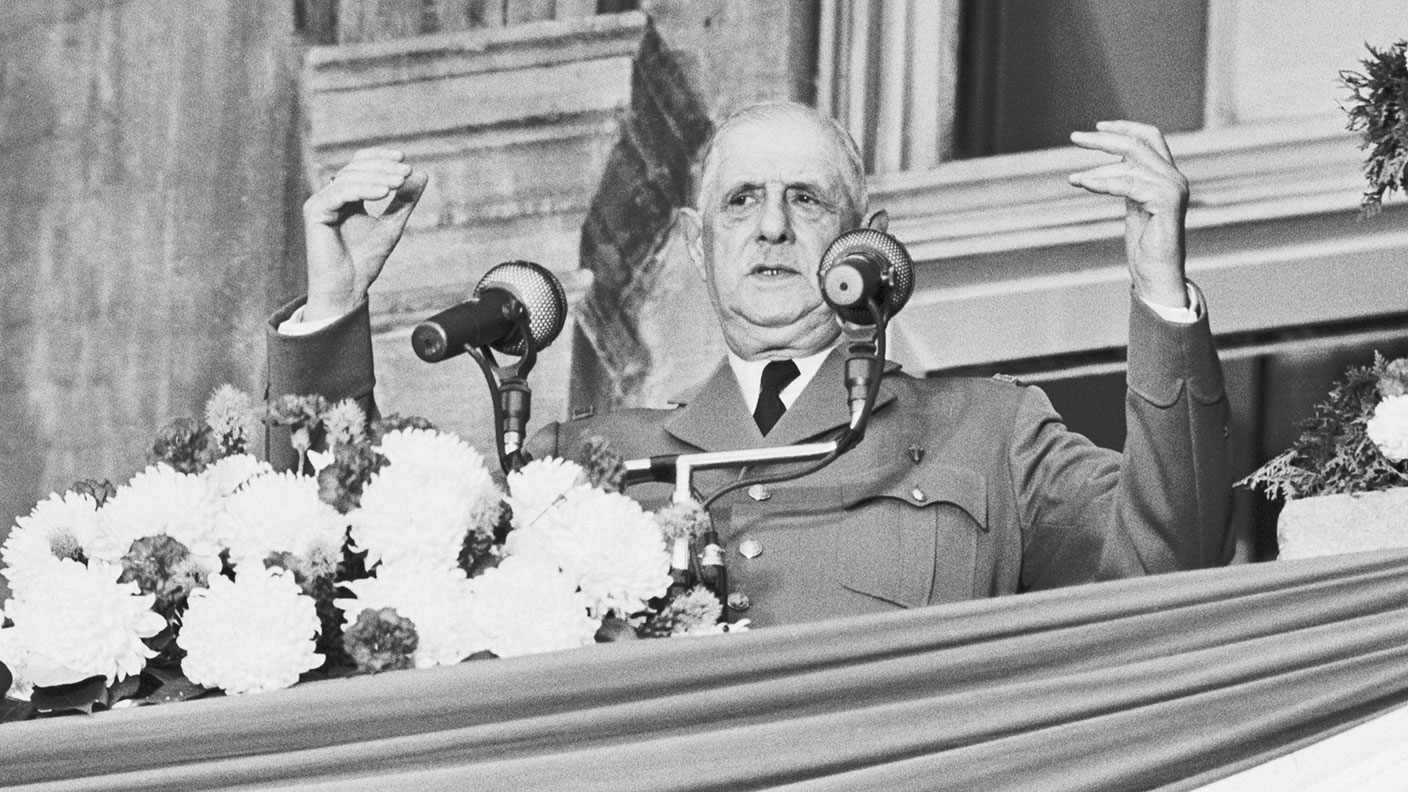27 November 1967: Charles de Gaulle vetoes Britain's entry to the EEC
On this day in 1967, French president Charles de Gaulle vetoed Britain's attempt to join the European Economic Community, claiming Britain didn’t agree with the core ideas of integration.


Get the latest financial news, insights and expert analysis from our award-winning MoneyWeek team, to help you understand what really matters when it comes to your finances.
You are now subscribed
Your newsletter sign-up was successful
Want to add more newsletters?
After World War II, Britain played a key role in protecting Western Europe, keeping troops in West Germany and helping to set up Nato. The foreign secretary, Ernest Bevin, was also an early supporter of European integration. In 1951 he said: “My policy is to be able to take a ticket at Victoria station and go anywhere I damn well please!”
However, Britain declined the opportunity to join the European Coal and Steel Community that same year, because of fears it would break up Britain's steel industry, which had been nationalised. As a result, Britain was not among the six countries that signed the Treaty of Rome in 1957, setting up the European Economic Community.
Strong European growth led the UK to submit an application in 1961, along with Denmark, Ireland and Norway. However, the French president, Charles de Gaulle, vetoed all four applications in 1963, arguing that Britain didn't agree with the core ideas of integration. So the UK formed the European Free Trade Association with six other nations. In 1967 Britain again attempted to join, and de Gaulle vetoed it again.
Try 6 free issues of MoneyWeek today
Get unparalleled financial insight, analysis and expert opinion you can profit from.

Sign up to Money Morning
Don't miss the latest investment and personal finances news, market analysis, plus money-saving tips with our free twice-daily newsletter
Don't miss the latest investment and personal finances news, market analysis, plus money-saving tips with our free twice-daily newsletter
But in 1969, de Gaulle departed, to be replaced by the more conciliatory Georges Pompidou, and French attitudes softened. After the 1970 election, the British prime minister, Ted Heath, pursued a third round of talks, and Britain joined in 1973 (as did Ireland and Denmark). A referendum in 1975 confirmed UK membership, with two-thirds of voters backing a slightly renegotiated deal. But tensions between Britain and Europe's institutions continued over the decades and Britain voted to leave in 2016.
Get the latest financial news, insights and expert analysis from our award-winning MoneyWeek team, to help you understand what really matters when it comes to your finances.

-
 Review: Pierre & Vacances – affordable luxury in iconic Flaine
Review: Pierre & Vacances – affordable luxury in iconic FlaineSnow-sure and steeped in rich architectural heritage, Flaine is a unique ski resort which offers something for all of the family.
-
 Could you get cheaper loans under ‘significant’ FCA credit proposals?
Could you get cheaper loans under ‘significant’ FCA credit proposals?The Financial Conduct Authority has launched a consultation which could lead to better access to credit for consumers and increase competition across the market, according to experts.
-
 31 August 1957: the Federation of Malaya declares independence from the UK
31 August 1957: the Federation of Malaya declares independence from the UKFeatures On this day in 1957, after ten years of preparation, the Federation of Malaya became an independent nation.
-
 13 April 1960: the first satellite navigation system is launched
13 April 1960: the first satellite navigation system is launchedFeatures On this day in 1960, Nasa sent the Transit 1B satellite into orbit to provide positioning for the US Navy’s fleet of Polaris ballistic missile submarines.
-
 9 April 1838: National Gallery opens in Trafalgar Square
9 April 1838: National Gallery opens in Trafalgar SquareFeatures On this day in 1838, William Wilkins’ new National Gallery building in Trafalgar Square opened to the public.
-
3 March 1962: British Antarctic Territory is created
Features On this day in 1962, Britain formed the British Antarctic Territory administered from the Falkland Islands.
-
10 March 2000: the dotcom bubble peaks
Features Tech mania fanned by the dawning of the internet age inflated the dotcom bubble to maximum extent, on this day in 2000.
-
9 March 1776: Adam Smith publishes 'The Wealth of Nations'
Features On this day in 1776, Adam Smith, the “father of modern economics”, published his hugely influential book The Wealth of Nations.
-
 8 March 1817: the New York Stock Exchange is formed
8 March 1817: the New York Stock Exchange is formedFeatures On this day in 1817, a group of brokers moved out of a New York coffee house to form what would become the biggest stock exchange in the world.
-
7 March 1969: Queen Elizabeth II officially opens the Victoria Line
Features On this day in 1969, Queen Elizabeth II took only her second trip on the tube to officially open the underground’s newest line – the Victoria Line.